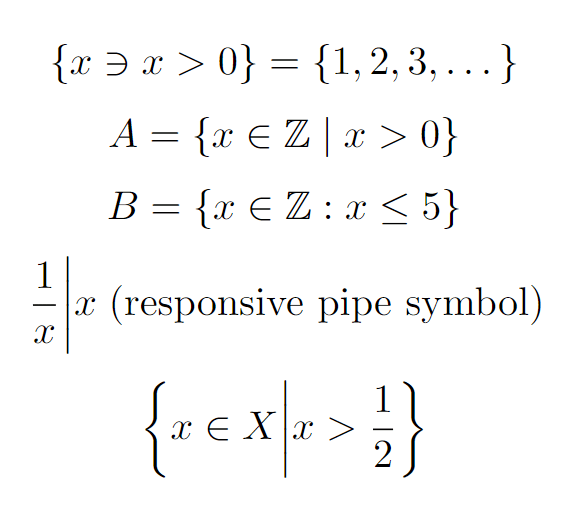Such That (∋) or Contains As Member symbol in LaTeX
Mathematicians use three types of Such That symbols, the most popular of which is ∋. Also, the symbol Such That is denoted by | (pipe) and : (colon).
In this tutorial, you will learn how to print the Such That (∋, :, |) or Contains As Member symbol in a LaTeX Document.
Such That (∋, :, |) symbol with default command
To print the Such That symbol in LaTeX you can use the default command \ni (∋).
For pipe (|) you can use the \mid command and if you want a responsive pipe symbol then you have to use the \middle| command (\left and \right are required).
For colon (:) you can use the keyboard key or \colon command.
\documentclass{article}
\usepackage{amssymb}
\usepackage{amsmath}
\begin{document}
$$ \{x \ni x> 0\} = \{1,2,3,\dots\} $$
$$ A = \{ x \in \mathbb{Z} \mid x > 0 \} $$
$$ B = \{ x \in \mathbb{Z} : x \leq 5 \} $$
$$ \left.\frac{1}{x} \middle| x\right. (\text{responsive pipe symbol}) $$
$$ \left\{ x \in X \middle| x > \frac{1}{2}\right\} $$
\end{document}Output:

Such that symbol with other packages
You can also use other packages to get some different styles of ∋ (Such That) symbols.
| Package | Command | Output |
|---|---|---|
| None | \ni | |
MnSymbol | \ni | |
fdsymbol | \ni | |
fdsymbol | \nowns | |
stix | \ni |
Leave a Reply